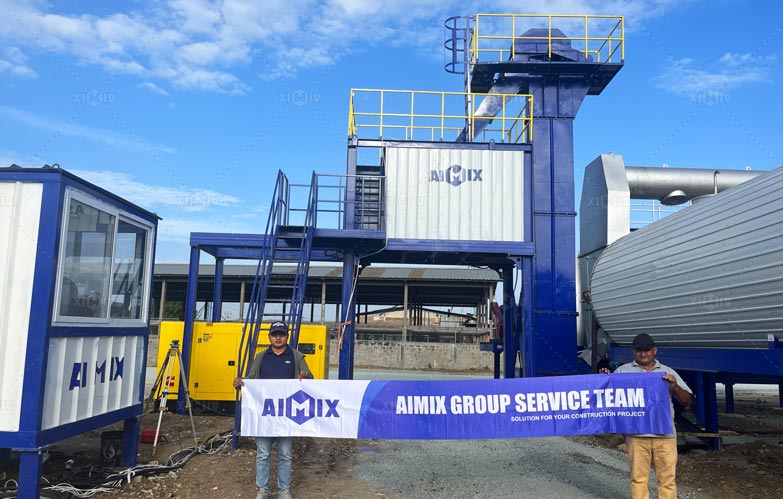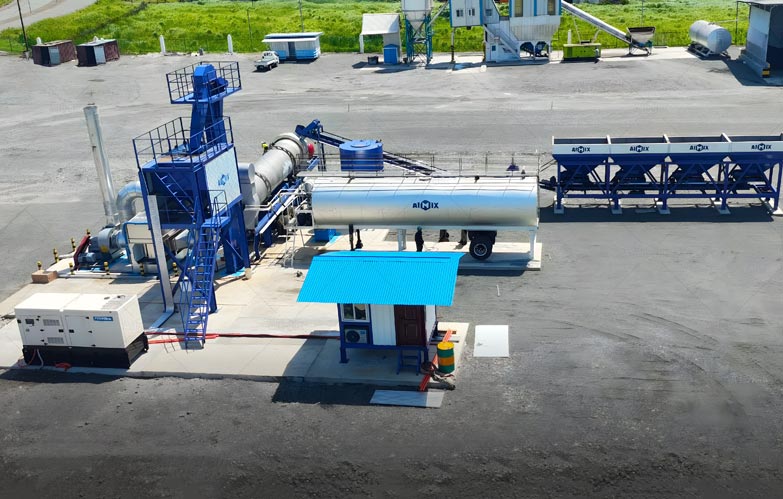
In road and bridge construction, speed is often as important as quality. When contractors face tight paving windows, emergency repairs, or multiple short-duration sites, the ability to mobilize, produce, and demobilize quickly can make the difference between profit and loss. Fast turnaround for a mobile asphalt mixing plant is not magic — it is the result of deliberate equipment choices, repeatable processes, and tight logistics. This article explains the practical elements that shorten setup and teardown times, and highlights how investment decisions — from comparing mobile asphalt plant price(planta de asfalto movil precio) to evaluating an asphalt plant for sale — should factor in true mobilization performance. We also show where a mini asphalt plant can deliver competitive advantages for fast-moving projects.
Turnaround time covers the entire cycle: site arrival, setup and commissioning, consistent production, shutdown and cleaning, and final demobilization. Delays can appear in any phase — waiting for permits, misaligned foundations, slow utility connections, burner tuning, or missing spare parts. The secret to fast turnaround is minimizing those friction points through better equipment design, standardized procedures, and proactive logistics planning.

A mobile plant designed as modular, trailer-mounted units dramatically reduces crane lifts and site assembly. Quick-connect couplings for power, hydraulics, and material transfer enable crews to hook up systems with minimal tools. When considering an asphalt plant for sale(planta de asfalto en venta), prioritize models with integrated frames and alignment tolerances that tolerate slight site unevenness — this means less time spent during setup.
Plants that require only simple leveling pads or short skid beams speed approvals and reduce site preparation time. A mini asphalt plant that can sit on compact concrete blocks or steel sleepers avoids the heavy civil works that often cause days of delay. This is particularly valuable for municipal projects where access and permitting are constrained.
Designs that allow tool-free access to wear parts, filters, and inspection ports shorten commissioning and routine checks. Quick-release guards, removable liners, and easily reachable baghouse doors let technicians perform necessary adjustments without disassembling major assemblies — shaving hours from the setup process.
Modern HMIs with stored mix recipes and automated start sequences eliminate a lot of manual tuning. Preloaded recipes for common mixes mean operators can bring the plant to target temperatures and feed rates with fewer iterations. This is where the real operational value can outweigh differences in mobile asphalt plant price — a slightly more expensive unit with superior automation may be producing acceptable mix hours faster than a cheaper, less automated alternative.
Integrated telemetry allows vendors to diagnose burner behavior, dosing variances, and baghouse performance remotely. Remote assistance shortens troubleshooting during first-time commissioning and often prevents unnecessary field visits. When evaluating an asphalt plant for sale, request examples of remote-support case histories and average time-to-commission metrics.
A pre-move checklist that covers spare parts, coupling verification, leveling procedures, and safety checks reduces human error. Teams that follow a fixed sequence become faster through repetition — what started as a two-day task becomes a reliable half-day setup after a few moves.
Operators who can handle basic electrical, mechanical, and burner tuning tasks avoid the bottleneck of waiting for a specialist. Cross-training also means the crew can perform rapid repairs or adjustments during commissioning, keeping the plant on schedule.
Pre-positioning aggregates and lining up tanker deliveries before the plant arrives prevents idle warm-up hours. A well-planned material logistics plan ensures the first batch is produced as soon as the plant reaches operating temperature, maximizing productive hours and minimizing wasted fuel and labor.
Plants with removable chutes, flush ports, and easy-access mixer liners reduce cleanout time. Properly designed drainage and purge systems mean less residual material to remove and faster safe demobilization.
Short, planned maintenance windows keep components in good condition and prevent surprises that prolong demobilization. It’s easier to sweep and check a plant after a scheduled pause than to repair it during an emergency breakdown.

Mobile asphalt plant price is only one metric; total cost includes mobilization time, downtime risk, spare parts availability, and productivity per move. A plant with rapid mobilization capability reduces indirect costs such as crane hire, escort vehicles, and lost paving windows.
When buying an asphalt plant for sale, verify local parts inventories and service networks. A slightly higher initial cost for a plant backed by nearby parts and technicians often results in faster turnaround when issues occur.
A mini asphalt plant(mini plantas asfálticas) is often the best economic and operational fit for short-term or frequently moved jobs. Lower mass and compact modularity mean fewer lifts and simpler site logistics, which directly shortens setup and teardown time.
Contractors that can rapidly move, set up, and produce are more competitive for emergency repairs, municipal contracts with narrow windows, and multi-site programs. Faster turnaround increases equipment utilization, reduces idle days, and enables teams to accept projects that would be impractical with slower-moving plants.
The secret to fast mobile asphalt mixing plant turnaround times is not a single feature — it’s an ecosystem: modular equipment, intelligent controls, disciplined processes, logistics planning, and robust supplier support. When you weigh mobile asphalt plant price against expected mobilization and production speed, and when you evaluate asphalt plant for sale options for local support and design for serviceability, you often find that a slightly higher upfront investment pays back quickly through increased agility. For many contractors, a thoughtfully chosen mini asphalt plant delivers the best combination of rapid mobilization, operational simplicity, and reliable mix quality — the real keys to winning more work and finishing projects on time.